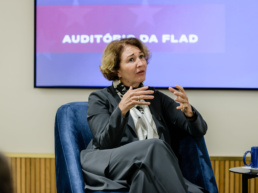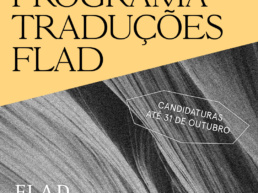Professors Inês Beleza Barreiros and José Santana Pereira are chosen as the next Visiting Professors in the Department of Portuguese and Brazilian Studies at Brown University, one of the best higher education institutions in the United States, for the 2024/2025 academic year.
This program is the result of a partnership between FLAD and Brown University, and every year selects two Professors – Portugueses or residing in Portugal – to teach a course at Brown University. Those chosen have the opportunity to teach a semester course in English in History or Social Sciences (e.g. Sociology, Anthropology or Political Science), addressing contemporary Portugal, which may be extended to Portuguese-speaking societies and/or have an international comparative dimension.
For the 2024/2025 academic year, the selection jury was composed of António Costa da Pinto (University of Lisbon), Cristiana Bastos (University of Lisbon), Elsa Henriques (member of the Executive Board of FLAD and president of the jury) and Onésimo Teotónio Almeida (representative of Brown University).
Inês Beleza Barreiros is a collaborating researcher at ICNOVA, at the Faculty of Social Sciences and Humanities of the New University of Lisbon, where she is co-manager of the national committee of the European project COST TRACTS – Traces as Research Agenda for Climate Change, Technology Studies, and Social Justice and co-leader of the Visual Culture Working Group of SOPCOM – Portuguese Association of Communication Sciences. She is also the editor of La Rampa – Art, Life & Beyond magazine. In the fall semester of 2024, the researcher will teach at Brown the semester course Anti-colonial, Postcolonial, and Decolonial Critiques and Praxis in the Portuguese-speaking World.
José Santana Pereira was selected for the spring semester of 2025. Associate Professor at the Department of Political Science and Public Policy at ISCTE, and Researcher at CIES-ISCT, his research has focused on topics such as media systems, the effects of the media on public opinion, electoral campaigns, political attitudes and electoral behaviour. His work has been published in academic journals such as Electoral Studies, International Journal of Press/Politics, Journal of European Public Policy, Perspectives on European Politics and Society, South European Society and Politics or Swiss Political Science Review. He will teach the biannual course Media, Entertainment and Politics in the Lusophone World, which will be dedicated to studying the deep relationship between politics, media and entertainment in countries whose official language is Portuguese.
Related Posts
16 de October, 2024
Anne-Marie Slaugther: “in a time of polarization it’s really hard to be a moderate”
Optimistic about the results in…
3 de October, 2024
‘2024: The Year of Democracy?’ with Anne-Marie Slaughter – October 15 at 6:30 pm
CEO of the think tank New America is…
1 de October, 2024
New open call for FLAD’s Translation Program until October 31
Publishers who want support for the…



